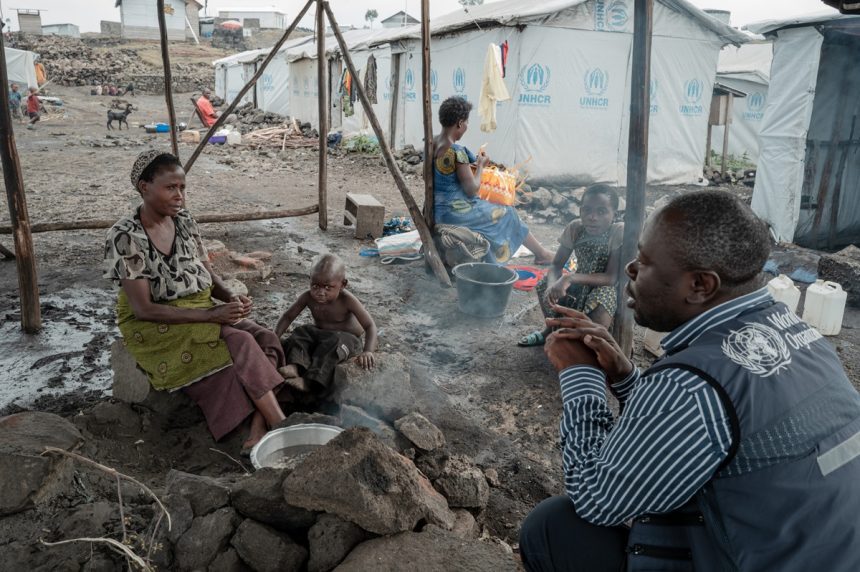Global Initiative to Combat Mpox Outbreaks Launched by WHO
The World Health Organization (WHO) has officially introduced a comprehensive Strategic Preparedness and Response Plan aimed at halting human-to-human transmission of mpox. This initiative marks a concerted effort at global, regional, and national levels following the declaration of an international public health emergency by the WHO Director-General on August 14.
Input from Member States and Funding Strategies
The development of this plan involved significant contributions from Member States, who received a briefing on the strategy on August 23. The plan outlines objectives for a six-month timeline spanning September 2024 to February 2025, anticipating a funding requirement of approximately US$135 million to effectively implement response measures. Collaborative efforts will include contributions from entities like Africa Centres for Disease Control and Prevention (Africa CDC), various communities, researchers, and other stakeholders.
An appeal for necessary funding will soon be initiated in order to facilitate these plans.
Core Components of the Plan
This strategic initiative builds upon previous temporary recommendations as well as existing standing recommendations. It encompasses essential actions such as enhancing surveillance systems, prevention tactics, readiness frameworks, and response strategies; promoting research efforts; ensuring fair distribution of medical resources like diagnostic tools and vaccines; mitigating risks associated with animal-to-human transmission; while also encouraging community involvement in managing outbreaks.
Targeted Vaccination Efforts for High-Risk Groups
The vaccination strategy is designed to prioritize individuals at heightened risk—namely close contacts of recent infections and healthcare professionals—to break transmission cycles effectively.
A Collaborative Global Approach
This initiative emphasizes global leadership backed by timely data-driven guidance along with equitable access to critical medical interventions targeting vulnerable populations in affected regions.
The WHO is collaborating with an extensive network comprising international organizations, regional bodies, national governments, local partners along with civil society groups. This coordination aims to bolster preparedness initiatives through several networks including the ACT-Accelerator Principals group*, Standing Committee on Health Emergency Preparedness and Response*, R&D Blueprint for Epidemics*, along with interim Medical Counter Measures Network (i-MCM Net)*.
A Focused Research Conference Scheduled
Together with Africa CDC located within partnerships alongside Coalition for Epidemic Preparedness Innovations (CEPI) and National Institute of Allergy and Infectious Diseases , WHO’s R&D Blueprint is hosting an online scientific conference scheduled on August 29–30 focusing specifically on aligning mpox research efforts towards outbreak management goals.
A Proactive Stance from WHO Leadership
“Control over mpox outbreaks occurring within regions like the Democratic Republic of Congo can indeed be achieved,” stated Dr. Tedros Adhanom Ghebreyesus , Director-General of WHO. “This necessitates collective action involving collaboration between international organizations and our agents on ground level including civil advocacy groups . Our SPRP formulates that actionable framework rooted firmly in principles surrounding equity , solidarity worldwide , human rights protection along sectorial coordination.”
Increased Support Within Affected Regions
Incident management support teams have been established at both headquarters level and various regional offices enhancing overall preparedness working tirelessly towards scaling up staffing solutions across high need areas . Specifically within Africa Region where demands lay heavily felt – there exists alignment between focal points led jointly by HQ officer & partner agencies such that one unified budget approach emerges via single continental preparation plans focusing chiefly upon mpox aspects addressing real-time epidemiological progressions locally identified amongst varied nations while adapting protocols accordingly through tailored strategies implemented responsively based vicinity specific observations observed regionally across communities monitored thereafter which ensure effective intervention taken ensuring outlying measures lead positively into expected outcomes yielding results beneficially inclusive towards all parties collaboratiing together moving onward steadily into next stages planned meticulously going forth energizing provisions orienting initiatives closely followed thereby securing future safety ensured robustly.
*Sources:
- [ACT Accelerator Principles Group Link]
- [Standing Committee link]
- [R&D Blueprint link]






